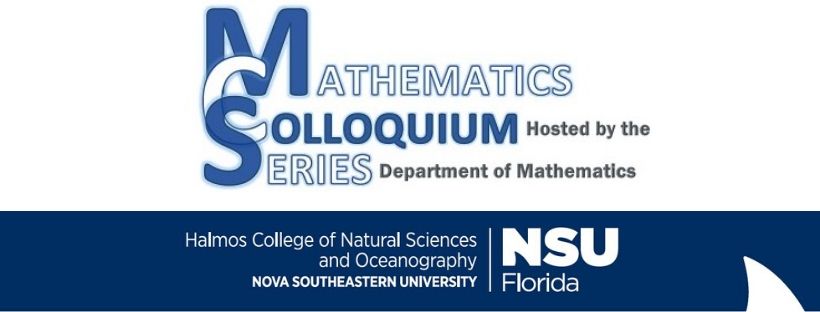Description
After a brief introduction to time scales, we will explore periodic functions on time scales. We will discuss how periodicity is defined on time scales that are not periodic. In particular, we will look at periodicity in the quantum case. Two definitions of periodicity have recently been introduced. One definition is based on the equality of areas lying below the graph of the function at each period; the other regards a periodic function to be one that repeats its values after a certain number of steps. We will show a relation between these two definitions and then use this relation to show the existence of a periodic solution in both senses of a quantum Volterra integral equation.
Date of Event
March 15, 2016
Location
Mailman-Hollywood Auditorium
Periodicity in Quantum Calculus
Mailman-Hollywood Auditorium
After a brief introduction to time scales, we will explore periodic functions on time scales. We will discuss how periodicity is defined on time scales that are not periodic. In particular, we will look at periodicity in the quantum case. Two definitions of periodicity have recently been introduced. One definition is based on the equality of areas lying below the graph of the function at each period; the other regards a periodic function to be one that repeats its values after a certain number of steps. We will show a relation between these two definitions and then use this relation to show the existence of a periodic solution in both senses of a quantum Volterra integral equation.




Presenter Bio
Jeffrey T. Neugebauer received his B.S. and M.S. from the University of Dayton and Ph.D. from Baylor University. He is an Associate Professor of Mathematics at Eastern Kentucky University. His research is in the field of the classical theory of ordinary differential equations.